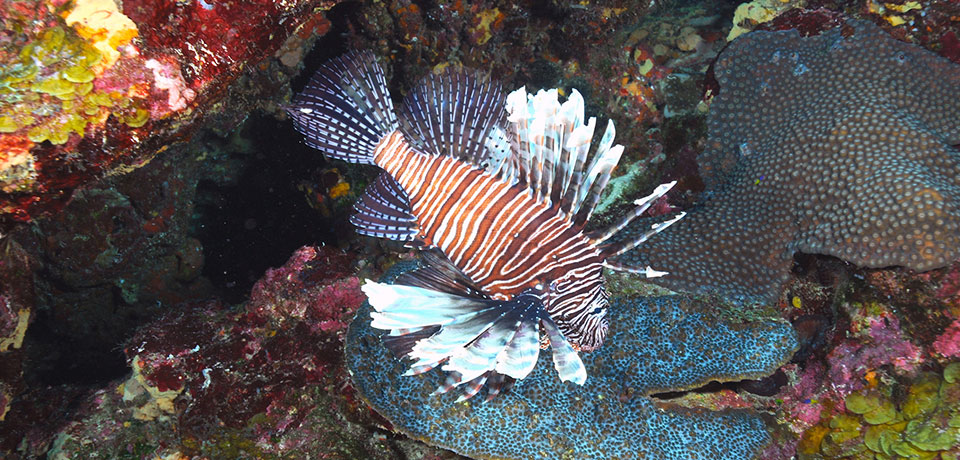Filleting the Lion
When it comes to the invasive lionfish, say NOAA scientists, ‘If we can’t beat them, let’s eat them!’

The lionfish, a longstanding showstopper in home aquariums, is a flourishing invasive species in U.S. Southeast and Caribbean coastal waters. One way to help keep the growing numbers of this invasive species at bay: eat more lionfish.
The lionfish, a native of the Western Pacific Ocean, is a venomous, voracious predator that’s flourishing in coastal waters of the U.S. Southeast and the Caribbean. This invasive species has the potential to harm reef ecosystems because it is a top predator that competes for food and space with overfished native stocks such as snapper and grouper. Scientists fear that lionfish will also kill off helpful species such as algae-eating parrotfish, allowing seaweed to overtake the reefs.
In the United States, the lionfish population is continuing to grow and increase its range. This is largely because lionfish have no known predators and reproduce all year long; a mature female releases roughly two million eggs a year.
Eat Lionfish!
Fortunately for our coral reefs, the flashy lionfish has caught the attention of the hungriest predators of all: people! Once stripped of its venomous spines, cleaned, and filleted like any other fish, the lionfish becomes delectable seafood fare. NOAA scientists researching the lionfish’s spread and impact are now encouraging a seafood market as one way to mitigate the species’ impacts on reef communities.
Get Social
More Information
Did you know?
Avoid consuming lionfish from locations known to be affected by ciguatera toxins. Check with local and state authorities if in doubt. Learn more about ciguatera from the Centers for Disease Control and Prevention.
